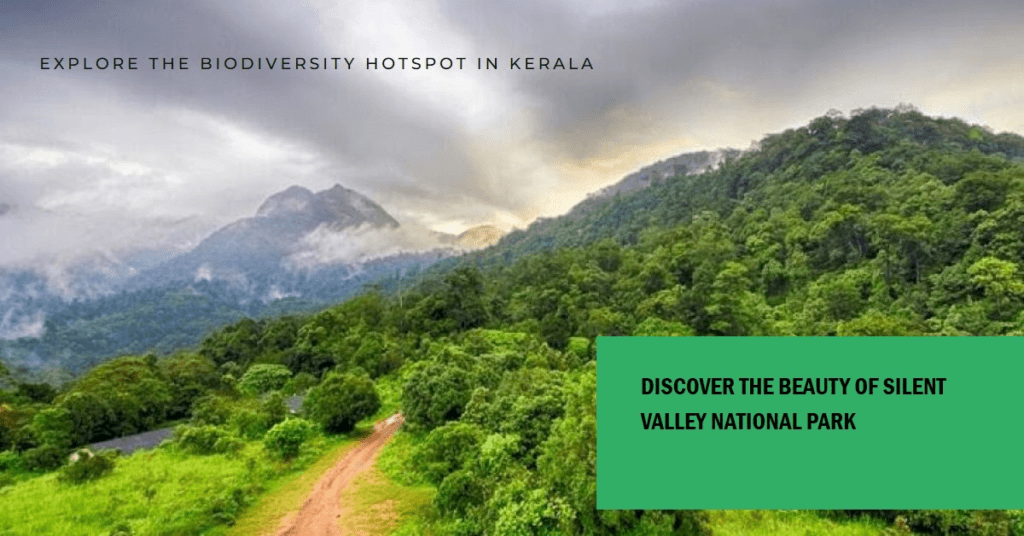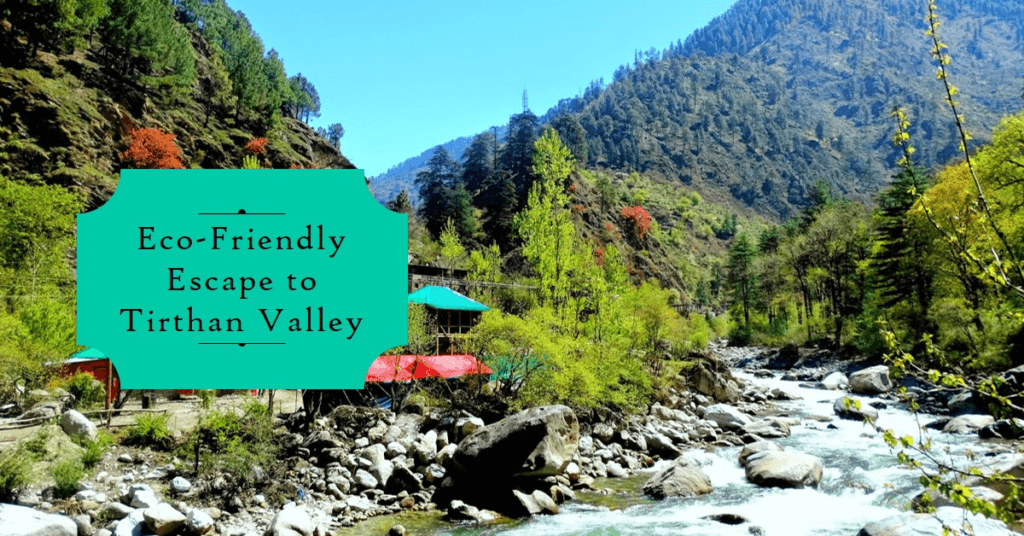Tourism in India is a treasure trove of natural beauty, offering diverse landscapes that range from snow-capped mountains to dense rainforests and arid deserts. While popular destinations such as the Himalayas, Goa, and Kerala draw millions of visitors each year, India’s lesser-known eco-friendly tourist spots remain relatively unexplored. These hidden gems provide a perfect getaway for travelers seeking sustainable tourism options while being in harmony with nature.
In this article, we will explore some of these off-the-beaten-path destinations, focusing on their unique ecosystems and how eco-tourism is contributing to their preservation. We will also highlight the efforts being made to maintain a balance between tourism and conservation, providing travelers with tips on how they can contribute to preserving these pristine environments.
The Rise of Eco-Tourism in India
Eco-tourism is rapidly gaining popularity worldwide, and India is no exception. With a focus on sustainability, responsible travel, and conservation, eco-tourism promotes tourism that minimizes environmental impact and benefits local communities. India, with its rich biodiversity and variety of ecosystems, is the ideal destination for eco-conscious travelers looking for greener, more responsible travel options.
The Ministry of Tourism has launched initiatives to promote eco-tourism as part of its broader goal of sustainable tourism development. States like Sikkim, Meghalaya, and Kerala have actively embraced eco-tourism, ensuring that visitors can enjoy nature without harming the environment.
Explore Eco-Tourism Guidelines by India’s Ministry of Tourism
1. Majuli Island, Assam: The World’s Largest River Island

Nestled on the banks of the Brahmaputra River in Assam, Majuli Island is the world’s largest river island and one of India’s best-kept eco-tourism secrets. Majuli is home to a unique blend of natural beauty and rich culture. With its lush greenery, tranquil waters, and a slow-paced lifestyle, it’s a perfect destination for eco-conscious travelers looking to escape the urban hustle.
Majuli’s fragile ecosystem is preserved through eco-friendly initiatives that promote sustainable living, including traditional farming and organic practices. Visitors can explore the island’s wetlands, rich in birdlife, including rare and endangered species like the Siberian crane. The local Mising and Deori tribes practice sustainable agriculture and handicrafts, offering travelers a glimpse into their way of life.
Tips for Eco-Tourists:
- Opt for homestays with local families to support the community.
- Use eco-friendly modes of transport, such as bicycles or traditional boats, to explore the island.
Read more about India’s Offbeat Tourist Destinations
2. Mechuka Valley, Arunachal Pradesh: The Land of Mystic Beauty

Located in the far northeast, Mechuka Valley in Arunachal Pradesh remains largely unexplored by mainstream tourists. Known for its pristine landscapes, snow-capped mountains, and untouched wilderness, this valley is a paradise for nature lovers. The river Siyom flows through the valley, and the area is dotted with lush forests and charming villages, offering eco-tourists a truly immersive experience in nature.
The valley has gained attention for its eco-tourism potential due to its stunning landscapes and efforts to promote sustainable tourism. With limited infrastructure and a focus on small-scale tourism, Mechuka is a model for eco-friendly development. Visitors can enjoy activities like trekking, camping, and bird watching while interacting with the local Memba tribe, who practice sustainable farming and maintain a close connection with their natural surroundings.
Tips for Eco-Tourists:
- Bring reusable water bottles and avoid using plastic during your stay.
- Respect local traditions and contribute to their preservation by participating in local handicraft workshops.
Discover Sustainable Tourism Initiatives in Arunachal Pradesh
3. Silent Valley National Park, Kerala: A Biodiversity Hotspot

Located in the Western Ghats, the Silent Valley National Park in Kerala is a haven for eco-tourism enthusiasts. Known for its incredible biodiversity, this park is home to over 1,000 species of flowering plants, 34 species of mammals, and more than 200 species of butterflies. The park’s rainforest ecosystem is considered one of the last undisturbed tracts of tropical rainforest in India, making it a critical area for conservation.
Silent Valley’s isolation and strict conservation policies have ensured that it remains untouched by large-scale tourism. Visitors can explore the park’s unique flora and fauna through guided eco-tours that support conservation efforts. With the towering Nilgiri mountains as its backdrop, Silent Valley offers a perfect combination of scenic beauty and responsible tourism.
Tips for Eco-Tourists:
- Book your trip through government-approved eco-tourism operators to ensure your visit supports conservation efforts.
- Stick to designated trails and avoid disturbing wildlife.
Learn More About Kerala’s Natural Wonders
4. Tirthan Valley, Himachal Pradesh: An Eco-Friendly Escape

For travelers seeking peace and solitude in the Himalayas, Tirthan Valley in Himachal Pradesh is the ideal eco-tourism destination. Located near the Great Himalayan National Park, a UNESCO World Heritage Site, Tirthan Valley is known for its lush forests, crystal-clear rivers, and abundant wildlife. The valley offers numerous trekking and camping opportunities for nature lovers, along with fishing in the Tirthan River.
The local communities in Tirthan Valley have embraced eco-tourism by offering homestays, organic food, and low-impact trekking experiences. As part of the sustainable tourism efforts, many villages in the region are committed to preserving the environment by minimizing plastic use and encouraging eco-friendly practices.
Tips for Eco-Tourists:
- Opt for sustainable accommodations, such as eco-lodges and homestays, to minimize your carbon footprint.
- Participate in community-led conservation initiatives, such as tree planting and river clean-up drives.
Great Himalayan National Park: Explore Sustainable Tourism
5. Daringbadi, Odisha: The Kashmir of Odisha

Often referred to as the “Kashmir of Odisha,” Daringbadi is a hidden gem nestled in the Eastern Ghats. This unexplored hill station is surrounded by dense forests, coffee plantations, and waterfalls, making it an ideal destination for eco-tourists seeking a serene environment. The area is home to several tribal communities, whose traditions are closely linked to the natural surroundings.
The local government has initiated several eco-friendly tourism projects in Daringbadi to preserve its fragile ecosystem while promoting sustainable tourism. Visitors can explore the Mandasaru Gorge, a biodiversity hotspot, and take nature walks through the forested hills. The region is also gaining popularity for its coffee eco-tourism, with coffee plantations offering guided tours and tastings.
Tips for Eco-Tourists:
- Respect the local culture by buying handmade crafts from tribal artisans.
- Limit water consumption and avoid littering in natural areas to protect the environment.
Explore Odisha’s Hidden Tourist Destinations
6. Khonoma Village, Nagaland: India’s First Green Village

Khonoma, located in the northeastern state of Nagaland, is renowned as India’s first green village. The village adopted eco-friendly practices after the Khonoma Nature Conservation and Tragopan Sanctuary was established to protect the rare Blyth’s Tragopan, a critically endangered bird species. Khonoma has successfully blended tourism with conservation, making it a pioneer in sustainable eco-tourism.
Visitors can explore the terraced farms, enjoy hiking through the lush hills, and participate in the village’s community-driven eco-tourism activities. The village uses sustainable farming techniques, traditional water management systems, and renewable energy to minimize its environmental footprint. Khonoma is an excellent example of how a community can lead the way in responsible tourism while preserving its cultural heritage.
Tips for Eco-Tourists:
- Engage with the local community to understand their conservation efforts.
- Minimize your environmental impact by using solar-powered chargers and eco-friendly toiletries.
Learn More About Khonoma: India’s First Green Village
The Importance of Responsible Eco-Tourism
As eco-tourism grows in popularity, it is vital for travelers to adopt sustainable practices to minimize their impact on these fragile ecosystems. Simple actions like reducing plastic usage, conserving water, supporting local businesses, and respecting wildlife can make a significant difference in preserving these hidden gems.
Eco-tourism not only helps protect the environment but also supports local economies and cultures. By choosing eco-friendly travel options, tourists can contribute to the sustainable development of these regions while enjoying the beauty and tranquility that nature has to offer.
Read More About Responsible Tourism in India
Conclusion
India’s unexplored eco-tourism destinations, from Majuli Island to Khonoma Village, offer unique experiences for travelers seeking sustainable travel options. These hidden gems provide an opportunity to connect with nature while contributing to conservation efforts and supporting local communities. As eco-tourism continues to gain momentum, India is well-positioned to lead the way in promoting responsible and sustainable tourism.










